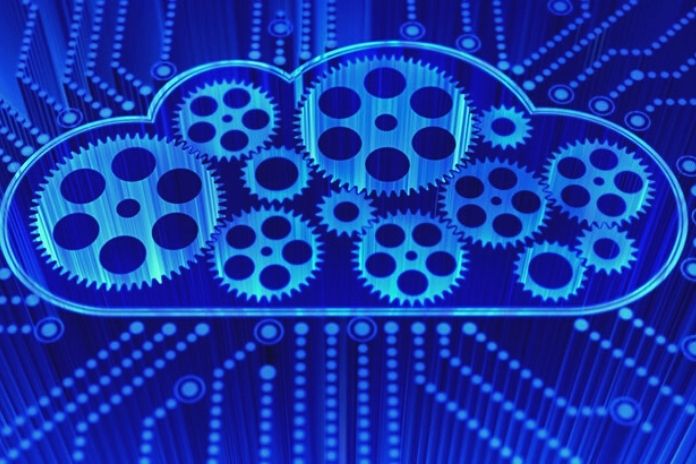Cloud manufacturing, in a real sense, “cloud fabricating, “additionally called Manufacturing as a Service, “producing as an assistance,” is the utilization of distributed computing in assembling. The exchange of corporate IT assets is utilized underway from basic frameworks to the “cloud”: foundations, stages, programming in the cloud that is coordinated to develop the creative interaction further. Cloud assembling can be done at various levels: from applications to administrations to existing creative assets.
Cloud production incorporates IaaS – Infrastructure as a Service, Paas – Platform as a Service, and Saas – Software as a Service. We talk about IaaS in the administration of servers, stockpiling, and systems administration; PaaS toward application improvement stages; of SaaS in the cloud the board of regular assembling programming like ERP – Enterprise Resource Planning, MES – Manufacturing Execution System, MRP – Materials Requirements Planning, PLM – Product Lifecycle Management, SCADA – Supervisory Control And Data Acquisition, PLC – Programmable Logic Controller just as programming identifying with 3D displaying, store network the executives, and internet business.
Conceivably, any product utilized underway can be overseen in the cloud. All cloud administrations are given in pay scrutinize and on-request mode: the organization pays for their utilization to providers, who bear the administration and support costs. Re-appropriating for adaptability, adaptability, prompt admittance to data from various gadgets, reconciliation of creation stages, and short cycles.
Cloud-empowered administrators can work on the preparation and tasks of all creation spaces. Besides, the organization will have the option to give the client admittance to on-request benefits during the item life cycle: from tweaked plan to discernibility up to later deals execution control and the board.
What Are The Benefits Of Cloud Manufacturing?
Cloud manufacturing realizes the potential of cloud computing.
Flexibility
The utilization of distributed computing makes it conceivable to upgrade the different creation processes on request and supply and appropriation strategies to decrease any conditions and the ecological effect of the techniques. In remote access, on account of data accessibility, permit availability from any gadget and any spot.
Cooperation
The accessibility of divided data works with cooperation among the various pieces of a planning group or the multiple spaces without the requirement for nonstop arrangements. The permeability of the different periods of the cycles, subsequently the straightforwardness of the activities, works with and improves choices. Settling any issues builds creation effectiveness and empowers exchange between workers, providers, and clients.
Efficiency
Cloud manufacturing allows an overall production capacity, which will enable you to modulate resources and machinery according to demand, monitored in real-time. SaaS includes the use of machine learning to manage and predict peak demand, redistribute workloads, monitor inventory levels and adherence to the KPIs of each process, improve production and delivery times, reducing overloads and wastes. All functions can be observed from a control panel that manages synchronized activities.
Safety
Cloud manufacturing involves encryption and automatic backups on the data stored within the data centers on the “cloud,” which remain independently accessible at any time. Software updates are centralized. This eliminates the risk of obsolescence and reduces the vulnerability to external attacks.
In Which Sectors Can Cloud Manufacturing Be Applied?
Cloud manufacturing can be applied in all sectors of the industrial and manufacturing sector where there is a need to rationalize, standardize, simplify and speed up production processes, from planning to after-sales.
Robotics
Cloud manufacturing makes it possible to integrate traditional industrial robots and cobots, collaborative robots, into production. Both robots and cobots speed up production times, reduce costs, relieve human operators from mechanical and repetitive tasks, optimize space, and limit the possibility of error, therefore the costs of rework. The software that enables them can be connected to the cloud and the data they collect during their activity.
3D Technologies
Cloud manufacturing enables 3D technologies of augmented reality, virtual reality, and additive manufacturing, instrumental in the rapid prototyping phase to speed up product development times and simulate possible scenarios before being placed on the market. AR and RV are also used in training in occupational safety.
Industrial Internet Of Things And Big Data Analytics
The IoT – Internet of Things, literally “Internet of Things,” is the connected network of physical devices enabled for the Internet. IoT devices are equipped with sensors that record interactions with the outside world and exchange data with other devices or end-users thanks to the connection through embedded systems and cloud computing. The Industrial Internet of Things is the industrial application of the IoT: computational architectures that support increasingly advanced data centers and software to optimize production.
Cloud computing is used in the IIOT to store and deeply process the data managed in real-time: the data centers and servers that operate the computing power and memory of the computational system are moved to the cloud. Data processing on the cloud is centralized: the inputs must “queue” and wait for the response, in waiting times called latency times.
In pure cloud architecture, these times are lengthened, not allowing a real-time reaction of the system: for this reason, mixed solutions of cloud, fog, and edge computing are used in the IIOT, with different levels of data processing. “On the cloud, only data that needs deep processing is sent. Data that can relate to SaaS include the MES, which monitors the production control, the PLM that manages the product life cycle, the ERP that plans company resources. Cloud processing contextualizes the historical data and provides support for strategic decisions.
Also Read: Seven Best Linux Software For Graphic Design

